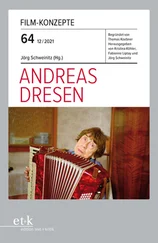Andrea Dworkin - Right-wing Women
Здесь есть возможность читать онлайн «Andrea Dworkin - Right-wing Women» весь текст электронной книги совершенно бесплатно (целиком полную версию без сокращений). В некоторых случаях можно слушать аудио, скачать через торрент в формате fb2 и присутствует краткое содержание. Жанр: Старинная литература, на английском языке. Описание произведения, (предисловие) а так же отзывы посетителей доступны на портале библиотеки ЛибКат.
- Название:Right-wing Women
- Автор:
- Жанр:
- Год:неизвестен
- ISBN:нет данных
- Рейтинг книги:4 / 5. Голосов: 2
-
Избранное:Добавить в избранное
- Отзывы:
-
Ваша оценка:
- 80
- 1
- 2
- 3
- 4
- 5
Right-wing Women: краткое содержание, описание и аннотация
Предлагаем к чтению аннотацию, описание, краткое содержание или предисловие (зависит от того, что написал сам автор книги «Right-wing Women»). Если вы не нашли необходимую информацию о книге — напишите в комментариях, мы постараемся отыскать её.
Right-wing Women — читать онлайн бесплатно полную книгу (весь текст) целиком
Ниже представлен текст книги, разбитый по страницам. Система сохранения места последней прочитанной страницы, позволяет с удобством читать онлайн бесплатно книгу «Right-wing Women», без необходимости каждый раз заново искать на чём Вы остановились. Поставьте закладку, и сможете в любой момент перейти на страницу, на которой закончили чтение.
Интервал:
Закладка:
natural and social worlds. Literacy, like fire, is a tool that must be
used by intelligence. Literacy is also a capacity: the capacity to be
literate is a human capacity; the capacity exists and it can be used
or it can be denied, refuted, made to atrophy. In persons socially
despised, it is denied. But denial is not enough, because people
insist on meaning. Humankind finds meaning in experiences,
events, objects, communications, relationships, feelings. Literacy
functions as part of the search for meaning; it helps to make that
search possible. Men can deny that women have the capacity to
learn ancient Greek, but some women w ill learn it nevertheless.
Men can deny that poor women or working-class women or prostituted women have the capacity to read or write their own language, but some of those women will read or write their own language anyw ay; they will risk everything to learn it. In the
slaveholding South in the United States, it was forbidden by law
to teach slaves to read or write; but some slaveowners taught, some
slaves learned, some slaves taught themselves, and some slaves
taught other slaves. In Jew ish law, it is forbidden to teach women
Talm ud, but some women learned Talmud anyw ay. People know
that literacy brings dignity and a wider world. People are strongly
motivated to experience the world they live in through language:
spoken, sung, chanted, and written. One must punish people terribly to stop them from wanting to know what reading and writing bring, because people are curious and driven toward both experience and the conceptualization of it. The denial of literacy to any class or category of people is a denial of fundamental humanity.
Humans viewed as animal, not human, are classically denied literacy: slaves in slave-owning societies; women in woman-owning societies; racially degraded groups in racist societies. The male slave is treated as a beast of burden; he cannot be allowed to read or
write. The woman is treated as a beast of breeding; she must not
read or write. When women as a class are denied the right to read


and write, those who learn are shamed by their knowledge: they
are masculine, deviant; they have denied their wombs, their cunts;
in their literacy they repudiate the definition of their kind.
Certain classes of women have been granted some privileges of
literacy—not rights, privileges. The courtesans of ancient Greece
were educated when other women were kept ignorant, but they
were not philosophers, they were whores. Only by accepting their
function as whores could they exercise the privilege of literacy.
Upper-class women are traditionally taught some skills of literacy
(distinctly more circumscribed than the skills taught the males of
their mating class): they can exercise the privilege of literacy if they
accept their decorative function. After all, the man does not want
the breeding, bleeding bitch at the dinner table or the open cunt in
the parlor while he reads his newspaper or smokes his cigar. Language is refinement: proof that he is human, not she.
The increase in illiteracy among the urban poor in the United
States is consonant with a new rise in overt racism and contempt
for the poor. The illiteracy is programmed into the system: an intelligent child can go to school and not be taught how to read or write. When the educational system abandons reading and writing
for particular subgroups, it abandons human dignity for those
groups: it becomes strictly custodial, keeping the animals penned
in; it does not bring human life to human beings.
Cross-culturally, girls and women are the illiterates, with two
thirds of the world’s illiterates women and the rate rising steadily.
Girls need husbands, not books. Girls need houses or shacks to
keep clean, or street corners to stand on, not the wide world in
which to roam. Refusal to give the tool of literacy is refusal to give
access to the world. If she can make her own fire, read a book
herself, write a letter or a record of her thoughts or an essay or a
story, it will be harder to get her to tolerate the unwanted fuck, to
bear the unwanted children, to see him as life and life through
him. She might get ideas. But even worse, she might know the


value of the ideas she gets. She must not know that ideas have
value, only that being fucked and reproducing are her value.
It has been hard, in the United States, to get women educated:
there are still many kinds of education off limits to women. In
England, it was hard for Virginia Woolf to use a university library.
Simple literacy is the first step, and, as Abby Kelley told a
women’s rights convention in 1850, “Sisters, bloody feet have
worn smooth the path by which you came here. ” 8 Access to the
whole language has been denied women; we are only supposed to
use the ladylike parts of it. Alice James noted in her diary that “[i]t
is an immense loss to have all robust and sustaining expletives refined aw ay from one! ”9
But it is in the actual exercise of literacy as a tool and as a capacity that women face punishment, ostracization, exile, recrimination, the most virulent contempt. To read and be feminine simultaneously she reads Gothic romances, not medical textbooks;
cookbooks, not case law; m ystery stories, not molecular biology.
The language of mathematics is not a feminine language. She may
learn astrology, not astronomy. She may teach grammar, not invent style or originate ideas. She is permitted to write a little book about neurotic women, fiction or nonfiction, if the little book is
trite and sentimental enough; she had better keep clear of philosophy altogether. In fiction, she had better be careful not to overstep the severe limits imposed by femininity. “This then, ” wrote V irginia Woolf, “is another incident, and quite a common incident in the career of a woman novelist. She has to say I w ill wait. I will
wait until men have become so civilised that they are not shocked
when a woman speaks the truth about her body. The future of
fiction depends very much upon what extent men can be educated
to stand free speech in women. ” 10 The constraint is annihilation:
language that must avoid one’s own body is language that has no
place in the world. But speaking the truth about a woman’s body is
not the simple explication of body parts— it is instead the place of


that particular body in this particular world, its value, its use, its
place in power, its political and economic life, its capacities both
potentially realized and habitually abused.
Читать дальшеИнтервал:
Закладка:
Похожие книги на «Right-wing Women»
Представляем Вашему вниманию похожие книги на «Right-wing Women» списком для выбора. Мы отобрали схожую по названию и смыслу литературу в надежде предоставить читателям больше вариантов отыскать новые, интересные, ещё непрочитанные произведения.
Обсуждение, отзывы о книге «Right-wing Women» и просто собственные мнения читателей. Оставьте ваши комментарии, напишите, что Вы думаете о произведении, его смысле или главных героях. Укажите что конкретно понравилось, а что нет, и почему Вы так считаете.












